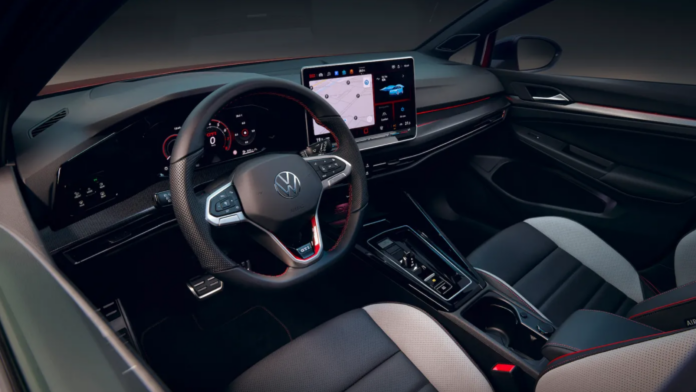Volkswagen is making a significant leap into the world of advanced AI by incorporating the ChatGPT technology into its vehicles, a move announced at CES 2024 in Las Vegas. This integration marks a milestone in the German automaker’s journey towards an AI-enhanced driving experience.
The company’s decision to embed an AI-powered chatbot within their models is driven by the desire to provide drivers with an interactive, AI-based tool for accessing researched content audibly. This innovative feature, based on Cerence’s Chat Pro software, is set to debut in Europe in the second quarter, with a rollout in Volkswagen’s range of electric vehicles (EVs) such as the ID.7, ID.4, ID.5, and ID.3. It will also be featured in the new iterations of Volkswagen’s Tiguan, Passat, and Golf vehicles.
Currently, there’s no confirmation on when this feature will be available in Volkswagen models in the United States, though it’s under consideration.
ChatGPT, developed by OpenAI, has risen rapidly as a leading text-generating AI chatbot, gaining significant attention in the tech world. Volkswagen’s move to integrate ChatGPT into its vehicles positions it as one of the largest automakers to embrace this technology, following in the footsteps of Mercedes-Benz, which introduced a similar AI-bot into its MBUX infotainment system.
Volkswagen’s approach to integrating ChatGPT involves its existing IDA voice assistant. This system, already used for controlling infotainment, navigation, air conditioning, and answering general questions, will be enhanced with ChatGPT to offer more intuitive and interactive experiences. For instance, drivers can expect enriched conversations, intuitive language interactions, vehicle-specific information, and more, all hands-free.
The integration process is seamless. Drivers will continue to interact with the IDA voice assistant as usual, either using the “Hello IDA” wake word or by pressing a button on the steering wheel. When the voice assistant encounters a request beyond its capabilities, such as complex queries, it will forward these anonymously to AI, and the response will be delivered through IDA, making it almost imperceptible to users when ChatGPT is at work.
This collaboration with Cerence is not the endgame for Volkswagen. Cerence CEO Stefan Ortmanns hinted at further joint efforts to design a new, large language model (LLM)-based user experience, which could be the foundation of Volkswagen’s next-gen in-car assistant.
It’s important to note that this initiative is distinct from the endeavors of Cariad, VW Group’s software arm. Established in 2020 to address VW’s software challenges, Cariad has faced its own set of hurdles, including delayed software launches and executive restructuring.
As we move into an era where cars are not just vehicles but smart, interactive companions, Volkswagen’s integration of ChatGPT is a significant stride towards redefining the automotive experience. By embracing AI and its vast potential, Volkswagen is not just enhancing the functionality of its cars but also paving the way for a future where the interaction between driver and vehicle is more connected, intuitive, and informative.












